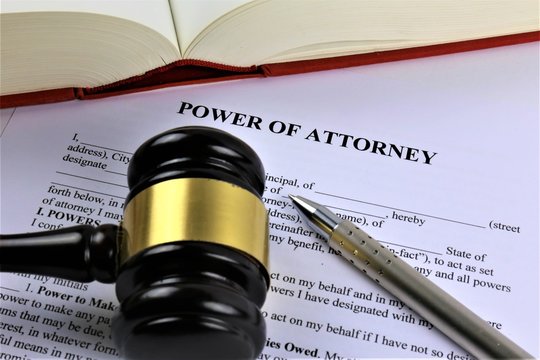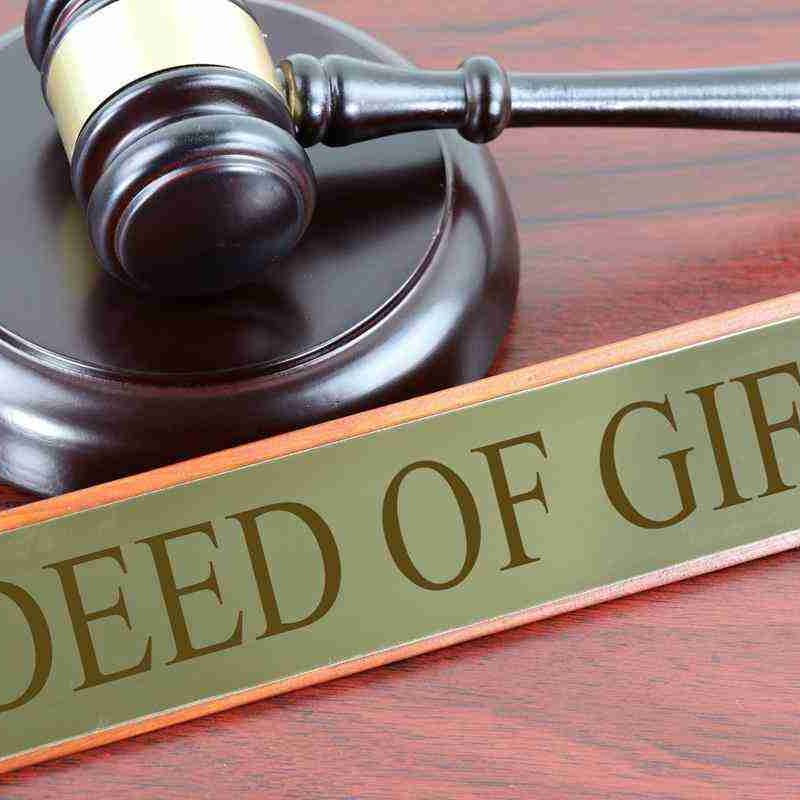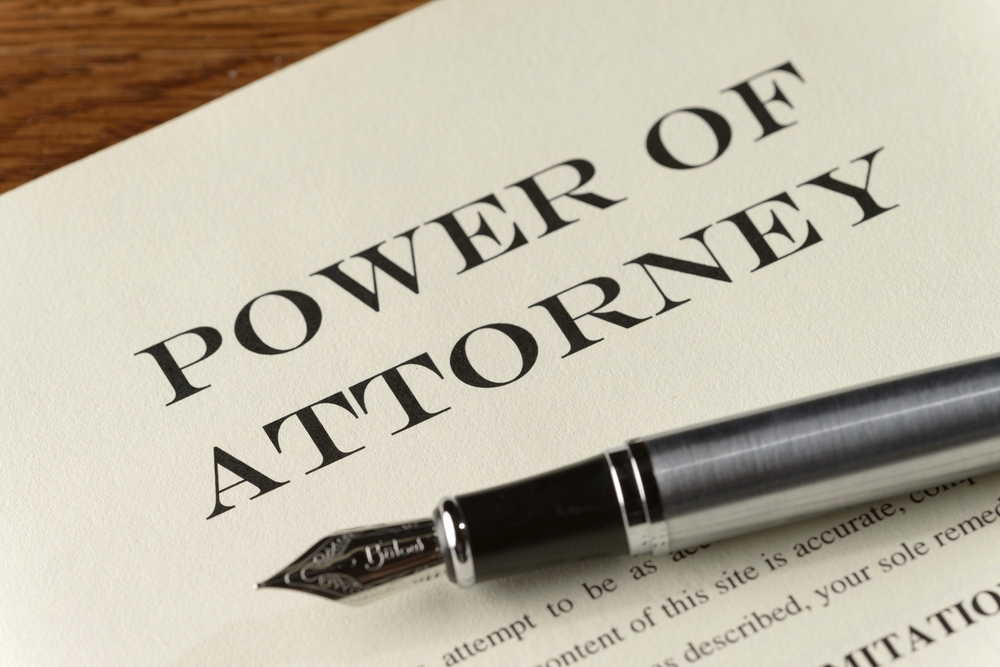MyLawPoint for property document verification was 100% worth it. Initially, I hired a lawyer for bank loan document processing but was disappointed with their professionalism. MyLawPoint connected me with an expert advocate who articulated all possible pitfalls in purchasing the property (DC Survey 66/1 Chikkanagamangala) from Reliaable Developer. Their detailed legal report helped me avoid a potential loss of 80 lakhs. I'm grateful for MyLawPoint's excellent coordination and swift document collection. Thank you to their team for saving me from a risky investment.
Registration of Power of Attorney
Registration of Power of Attorney
Basic Price
₹15,999.00 ₹9,999.00
Registration of Power of Attorney
Understanding Power of Attorney: Roles, Responsibilities, and Legal Implications
A Power of Attorney (POA) is a legal instrument through which an individual delegates certain powers to another person. The individual granting these powers is commonly referred to as the principal, grantor, or donor, while the person receiving these powers is known as the POA holder, agent, donee, or attorney.
The POA document delineates the specific powers and responsibilities that the principal authorizes the POA holder to exercise on their behalf. These powers can range from managing financial affairs to making healthcare decisions, depending on the scope outlined in the POA document.
POA holders can be chosen from among friends, family members, or acquaintances. The principal typically selects someone they trust to act in their best interests when they are unable to perform certain tasks themselves. This trust is essential, as the POA holder assumes significant responsibilities in managing the principal’s affairs and making decisions on their behalf.
Overall, a Power of Attorney serves as a crucial legal tool for delegating authority and ensuring that the affairs of the principal are properly managed in their absence or incapacity.
Key Elements of a Power of Attorney: Understanding Its Contents and Implications
Essential Components of a Well-Drafted Power of Attorney (POA)
- Principal’s Details: Comprehensive information about the person granting the power of attorney, known as the Principal.
- Attorney’s Details: Detailed particulars of the individual receiving the authority, known as the Attorney or Agent.
- Purpose of Granting POA: Clear articulation of the reason or purpose for delegating authority through the power of attorney.
- Date and Place of POA Creation: Specifics regarding the date and location where the power of attorney was created, along with its effective date.
- Termination Date (if applicable): Indication of the termination date if the power of attorney is limited by time. If no time frame is specified, clarification regarding whether the POA is durable or non-durable should be provided.
A well-drafted power of attorney encompasses these key elements, ensuring clarity and legality in delegating authority from the Principal to the Attorney.

I purchased a flat in Hyderabad, but the builder delayed possession beyond the committed date. This caused significant financial strain as I was paying high EMIs and rent, leaving me with no money at month-end. Feeling stressed and helpless, I discovered MyLawPoint. Their Property Expert Lawyer suggested sending a legal notice to the builder and appealing to RERA for the delayed possession. Thanks to their guidance, I received compensation from the builder for the delay and finally gained possession of my flat. MyLawPoint's support was invaluable in resolving this effectively.
Malani

I had an exceptional experience with MyLawPoint. Their support throughout the entire process, from Property Paper Verification to the Sale Deed Registration, was truly comprehensive and invaluable. The level of service they provided exceeded my expectations, and I am highly satisfied with the outcome. Their dedication to keeping me informed with timely updates at every step of the way further showcased their professionalism and commitment to client satisfaction. I wholeheartedly recommend MyLawPoint to anyone in need of legal support for their property transactions.
Gerald Gilbert
Explore our other property services
Related products
Frequently Asked Question
No, stamp duty is not included in MyLawPoint's fee. It should be paid separately, and our lawyers will assist you in procuring it.
The time taken for property registration varies based on the sub-registrar office and property registration flow. Typically, after document submission to MyLawPoint, expect 3-7 days for lawyer-assisted property appointments with the local sub-registrar office.
Yes, while MyLawPoint handles appointments and formalities, your presence at the sub registrar’s office is required on the day of registration appointment.
Yes, an Agreement to Sell can be cancelled through mutual consent or if a condition in the contract permits cancellation. However, penalties or consequences may be specified in the agreement for cancellation.
Registration of Power of Attorney
Registration of Power of Attorney” service is a comprehensive solution designed to give you peace of mind and legal security. This product guides you through the entire process of creating and registering a Power of Attorney (PoA) in India, allowing you to delegate authority to a trusted individual for a range of tasks—from managing your property and finances to making healthcare decisions on your behalf.
Understanding Power of Attorney: Roles, Responsibilities, and Legal Implications
A Power of Attorney (POA) is a legal instrument through which an individual delegates certain powers to another person. The individual granting these powers is commonly referred to as the principal, grantor, or donor, while the person receiving these powers is known as the POA holder, agent, donee, or attorney.
The POA document delineates the specific powers and responsibilities that the principal authorizes the POA holder to exercise on their behalf. These powers can range from managing financial affairs to making healthcare decisions, depending on the scope outlined in the POA document.
POA holders can be chosen from among friends, family members, or acquaintances. The principal typically selects someone they trust to act in their best interests when they are unable to perform certain tasks themselves. This trust is essential, as the POA holder assumes significant responsibilities in managing the principal’s affairs and making decisions on their behalf.
Overall, a Power of Attorney serves as a crucial legal tool for delegating authority and ensuring that the affairs of the principal are properly managed in their absence or incapacity.
Key Elements of a Power of Attorney: Understanding Its Contents and Implications
Essential Components of a Well-Drafted Power of Attorney (POA)
- Principal’s Details: Comprehensive information about the person granting the power of attorney, known as the Principal.
- Attorney’s Details: Detailed particulars of the individual receiving the authority, known as the Attorney or Agent.
- Purpose of Granting POA: Clear articulation of the reason or purpose for delegating authority through the power of attorney.
- Date and Place of POA Creation: Specifics regarding the date and location where the power of attorney was created, along with its effective date.
- Termination Date (if applicable): Indication of the termination date if the power of attorney is limited by time. If no time frame is specified, clarification regarding whether the POA is durable or non-durable should be provided.
A well-drafted power of attorney encompasses these key elements, ensuring clarity and legality in delegating authority from the Principal to the Attorney.
Recommended Products
Related products
What our users say
Lorem ipsum dolor sit amet, consectetur adipisicing elit, sed do eiusmod tempor incididunt ut labore et dolore magna aliqua. Ut enim ad minim veniam, laboris consequat.
Anna Miller
DesignerLorem ipsum dolor sit amet consectetur adipisicing elit sed do eiusmod tempor incididunt ut labore et dolore Lorem ipsum dolor sit amet, consectetur adipisicing elit

Kevin Walker
DeveloperLorem ipsum dolor sit amet, consectetur adipisicing elit, sed do eiusmod tempor incididunt ut labore et dolore magna aliqua. Ut enim ad minim veniam, laboris consequat.

Ruth Pierce
Customer₹15,999.00 ₹9,999.00





